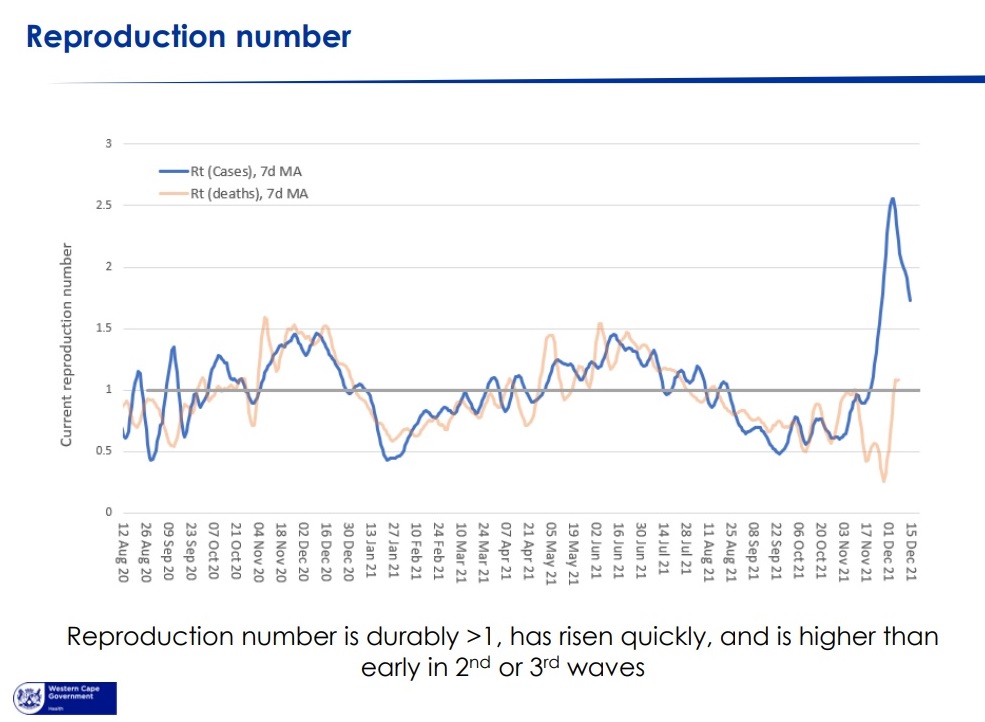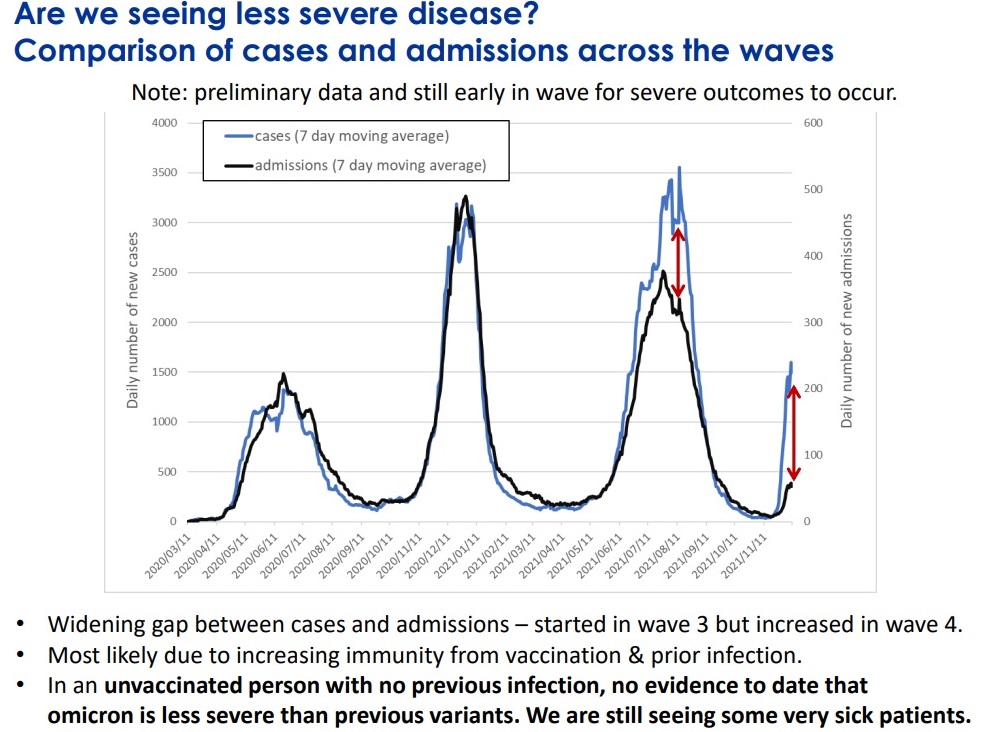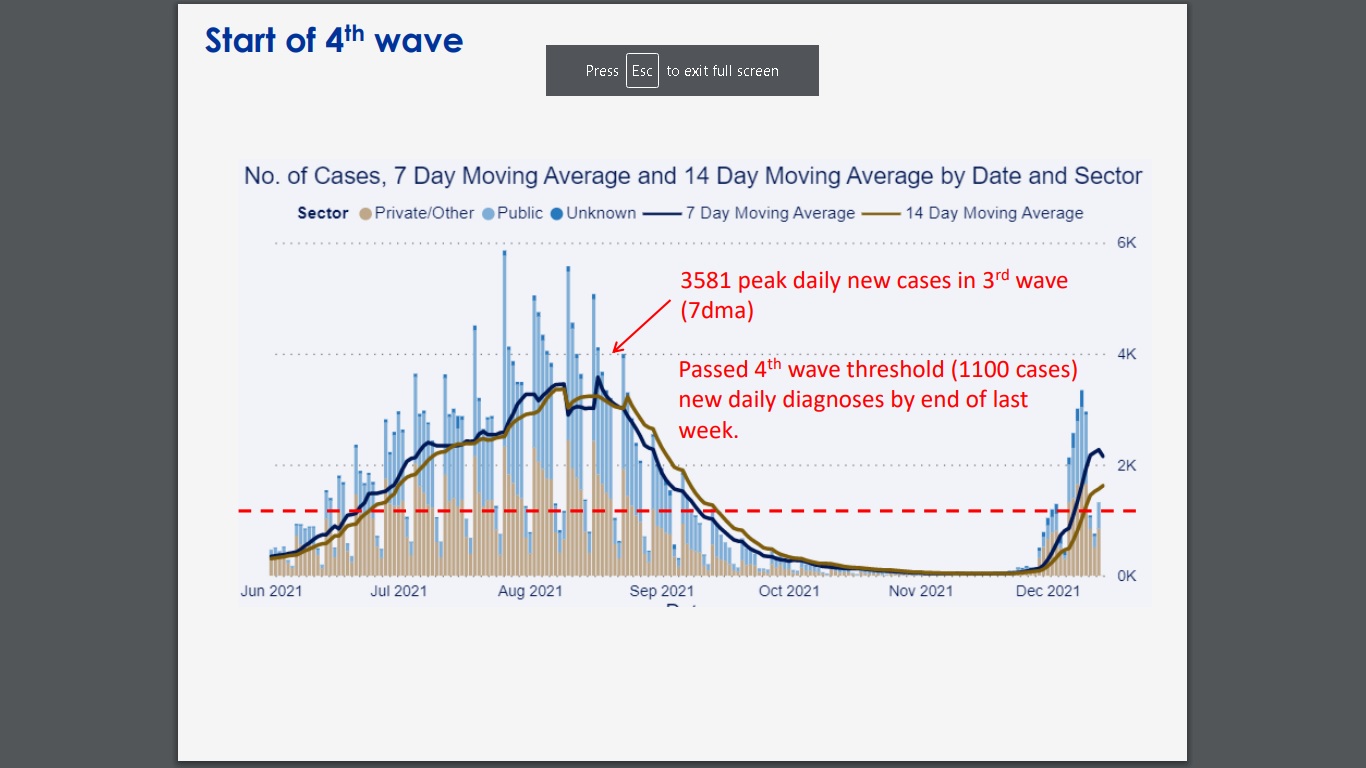GARDEN ROUTE NEWS - The Western Cape is prepared to scale up its Covid response in line with its trigger warning system.
In a digital press conference yesterday, Wednesday 15 December, Western Cape Premier Alan Winde said with the province being officially in the Covid-19 fourth wave, they are expecting more cases than the seven-day moving average of the third wave peak in the coming week.
"The reproduction number is over 1 and has risen quickly, surpassing that of the early stages of both the second and third waves," he said.
According to data shared by the head of health in the Western Cape, Dr Keith Cloete, steep increases in the number of daily new cases are being recorded, with on average over 2 000 new diagnoses per day.
The proportion of positive Covid-19 tests has increased to an average of 38%. Hospital admissions are now showing signs of an early increase with 65 new admissions per day, while deaths remain low with around 1 death per day.
On 15 December the National Institute for Communicable Diseases (NICD) reported 26 976 new cases nationally, an increase that represents a 32,2% positivity rate. A further 54 Covid-related deaths were reported.
 The reproduction number has risen fast and is higher than early in the second and third waves.
The reproduction number has risen fast and is higher than early in the second and third waves.
In anticipation of a fourth wave, the Western Cape Government has established a six-point resurgence plan. This plan uses hospital capacity as the most important measure that will trigger an upscaling in resource capacity to ensure the demand for care is met.
Cloete said while they will be vigilant of the growth of cases, their primary focus will be on health service pressure so as to save lives. There has been a sustained week-on-week increase in hospitalisations of over 20%, off a low base.
 Data indicates a widening gap between cases and hospitalisations. This trend began in the third wave, but is increasing in the fourth wave. Western Cape head of health Dr Keith Cloete said there is no evidence to date that Omicron causes less severe disease in unvaccinated people without prior infection.
Data indicates a widening gap between cases and hospitalisations. This trend began in the third wave, but is increasing in the fourth wave. Western Cape head of health Dr Keith Cloete said there is no evidence to date that Omicron causes less severe disease in unvaccinated people without prior infection.
Hospitals are currently coping with the demand as admissions are still at relatively low levels.
"Early and preliminary evidence on Omicron does indicate a slower increase in hospitalisation, but again we need to await robust research and avoid premature conclusion," Cloete said.
The Metro hospitals have an average bed occupancy rate of 89%; George drainage area hospitals are at 72%; Paarl drainage area hospitals are at 76% and Worcester drainage area hospitals are at 76%.
Critical care bed occupancy rate for designated Covid-19 beds in the province stands at 10%.
"What is clearly emerging already is that the vaccine remains effective in preventing severe disease, especially in those at higher risk. That is why our key message is that vaccinations remain our best defence against Covid-19," said Cloete.
"There is no evidence to date that Omicron causes less severe disease in unvaccinated people without prior infection, and we are still seeing very sick patients in our hospitals."
 The fourth wave threshold (1 100) was passed last week and the daily new cases are already over 2 000.
The fourth wave threshold (1 100) was passed last week and the daily new cases are already over 2 000.
Re-infection
Preliminary data indicates that people who have had Covid could be re-infected by the Omicron variant.
Furthermore, to date, the proportion of cases with severe disease has been lower. "This is most likely due to a predominantly younger population being infected who are at lower risk of severe disease. In addition, this points to higher levels of protection among those who have already been vaccinated and among those who have been previously infected," said Cloete.
'We bring you the latest Garden Route, Hessequa, Karoo news'
















